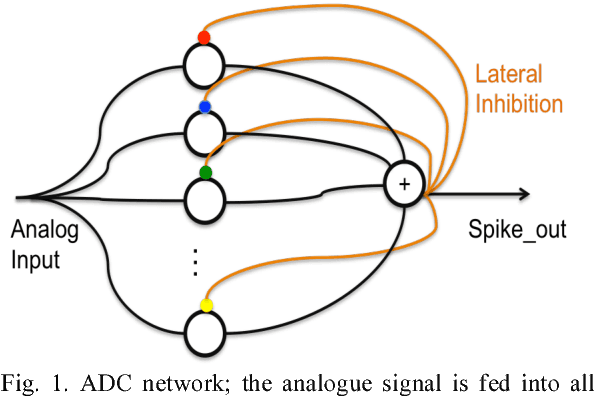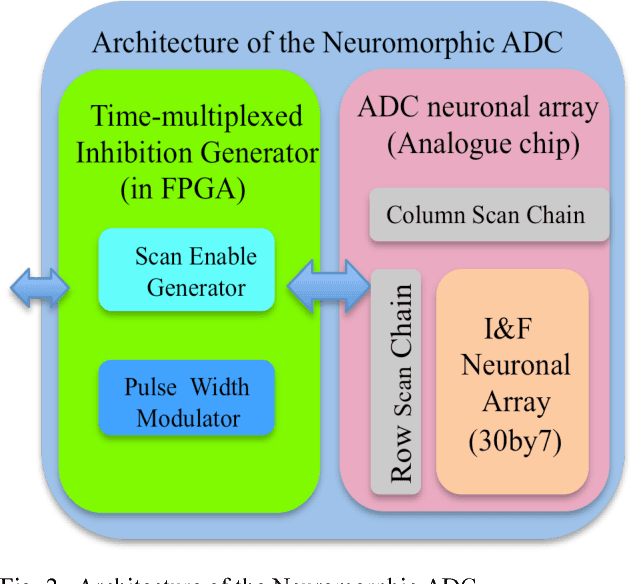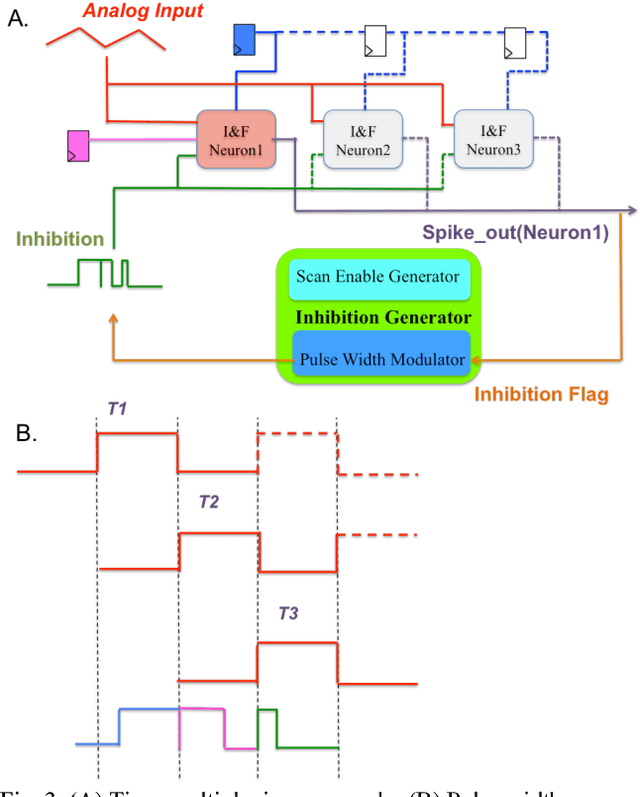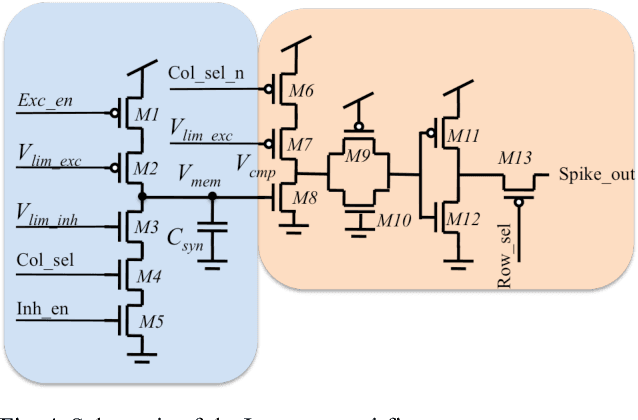A Reconfigurable Mixed-signal Implementation of a Neuromorphic ADC
Paper and Code
Sep 03, 2015



We present a neuromorphic Analogue-to-Digital Converter (ADC), which uses integrate-and-fire (I&F) neurons as the encoders of the analogue signal, with modulated inhibitions to decohere the neuronal spikes trains. The architecture consists of an analogue chip and a control module. The analogue chip comprises two scan chains and a twodimensional integrate-and-fire neuronal array. Individual neurons are accessed via the chains one by one without any encoder decoder or arbiter. The control module is implemented on an FPGA (Field Programmable Gate Array), which sends scan enable signals to the scan chains and controls the inhibition for individual neurons. Since the control module is implemented on an FPGA, it can be easily reconfigured. Additionally, we propose a pulse width modulation methodology for the lateral inhibition, which makes use of different pulse widths indicating different strengths of inhibition for each individual neuron to decohere neuronal spikes. Software simulations in this paper tested the robustness of the proposed ADC architecture to fixed random noise. A circuit simulation using ten neurons shows the performance and the feasibility of the architecture.
 Add to Chrome
Add to Chrome Add to Firefox
Add to Firefox Add to Edge
Add to Edge